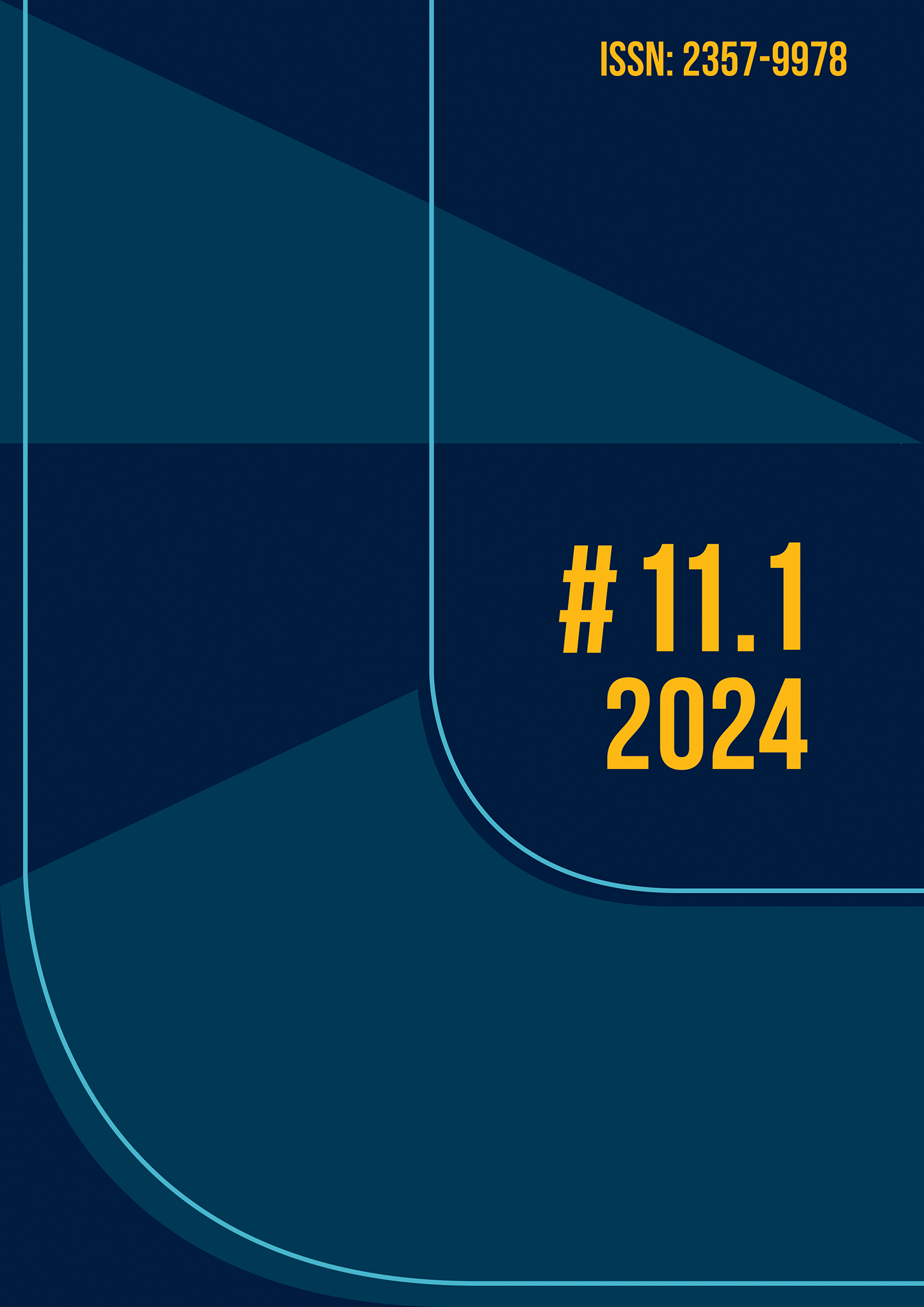The Affective Dimension of Theater Direction and its Effects on the Conformation of Groups
DOI:
https://doi.org/10.36025/arj.v11i1.33803Keywords:
contemporary theatre, artistic practices, theatre directors, affects, theatre groupsAbstract
This work explores the affective dimension in group processes of artistic creation, with a focus on independent theater groups in Córdoba, Argentina. It investigates how these groups are formed and the role of leadership within them. It is part of a broader research project on directing in this context. Through ethnographic interviews and discourse analysis, the significance of group dynamics in defining theatrical direction was acknowledged. The objective of this paper is to comprehend how emotions contribute to the formation of groups dedicated to artistic creation. To achieve this, it draws upon a conceptual framework and incorporates insights from scholars such as Sara Ahmed, Cecilia Macón, and Adrián Scribano, among others, to elucidate the intricate interplay between groups and emotions. It systematizes affective dimensions of direction within their formation and concludes by emphasizing the value of the emotional dimension as a driving force in artistic work itself.
Downloads
References
AHMED, Sara. La política cultural de las emociones. México DF: Universidad Nacional Autónoma de México, 2015.
AHMED, Sara. La promesa de la felicidad: Una crítica cultural al imperativo de la alegría. Buenos Aires: Caja Negra, 2019.
BOENISCH, Peter. Directing scenes and senses: The thinking of Regie. Manchester: Manchester University Press, 2015.
BOGART, Anne. La preparación del director: Siete ensayos sobre teatro y arte. Barcelona: Alba, 2013.
BOURDIEU, Pierre. El sentido práctico. Buenos Aires: Siglo XXI Editores, 2013.
BOURDIEU, Pierre. Las reglas del arte. Barcelona: Anagrama, 1995.
DEL SARTO, Ana. Los afectos en los Estudios Culturales Latinoamericanos. Cuerpos y subjetividades en Ciudad Juárez. Cuadernos De Literatura, v.16 n. 32, p. 41-68, 2012. Disponible en https://revistas.javeriana.edu.co/index.php/cualit/article/view/4060 . Consultado: 25 de junio 2021.
FUKELMAN, María. Influencias del teatro europeo en el primer teatro independiente de Buenos Aires. Acta Literaria, n. 54, p. 159-178, primer semestre, 2017. Disponible en https://scielo.conicyt.cl/scielo.php?script=sci_arttext&pid=S0717-68482017000100159. Consultado: 2 de septiembre 2023.
GLOZMAN, Mara. Lingüística, materialismo, (inter)discurso: elementos para una lectura de Las verdades evidentes. En: PÊCHEUX, Michel. Las verdades evidentes: lingüística, semántica, filosofía. Buenos Aires: Ediciones del CCC Centro Cultural de la Cooperación Floreal Gorini, 2016, pp. 7-18.
GREGG, Melissa y Gregory J. SEIGWORTH (eds.). The Affect Theory Reader. Duke University Press, 2010.
LÓPEZ GONZÁLEZ DE ORDUÑA, Helena. Prólogo. En AHMED, Sara. La política cultural de las emociones. México DF: Universidad Nacional Autónoma de México, 2015, pp. 9-18.
MACÓN, Cecilia y Mariela SOLANA. Introducción. En: Pretérito indefinido: afectos y emociones en las aproximaciones al pasado. Buenos Aires: Título, 2015, pp. 11-42.
MARIN, Fwala-lo. El rol de la dirección en el teatro independiente argentino y su potencia para abrir brechas de igualdad. A Contracorriente: una revista de estudios latinoamericanos; aceptado en 2022; en prensa.
MARIN, Fwala-lo. El rol de la dirección en la intersección entre metodologías de trabajo creativo y condiciones materiales en el teatro independiente argentino. Tercio Creciente. Revista de Estudios en Sociedad, Artes y Gestión Cultural, n. 22, p 131-144, 2022. Disponible en https://doi.org/10.17561/rtc.22.6882. Consultado: 2 de septiembre 2023.
RANCIÈRE, Jacques. El reparto de lo sensible: Estética y política. Santiago de Chile: LOM Ediciones, 2009.
REYNARES, Juan Manuel. El neoliberalismo cordobés. La trayectoria identitaria del peronismo provincial entre 1987 y 2003. Tesis para optar al grado de Doctor en Ciencias Políticas. Centro de Estudios Avanzados de la Universidad Nacional de Córdoba, Argentina, 2014.
ROSSI, Miguel Angel y Luis Félix BLENGINO. La lógica del neoliberalismo a partir de la interlocución de Immanuel Kant y la impronta de Michel Foucault. En: ROSSI, Miguel Angel y Andrea LÓPEZ (eds.). Crisis y metamorfosis del Estado argentino: el paradigma neoliberal en los noventa. Buenos Aires: Ediciones Luxemburg, 2011, p. 19-46.
SCRIBANO, Adrián y Matías ARTESE. Emociones y acciones colectivas: un bosquejo preliminar de su situación hoy. En: CERVIO, Ana Lucía (Comp.). Las tramas del sentir: ensayos desde una sociología de los cuerpos y las emociones. Buenos Aires: Estudios Sociológicos, 2012, p. 85-114.
SEGATO, Rita Laura. La guerra contra las mujeres. Buenos Aires: Prometeo Libros, 2018.
Downloads
Published
How to Cite
Issue
Section
License
Copyright (c) 2024 Fwala-lo Marin (Autor)

This work is licensed under a Creative Commons Attribution-NonCommercial-ShareAlike 4.0 International License.

This work is licensed under a Attribution-NonCommercial-ShareAlike 4.0 International (CC BY-NC-SA 4.0) License.
Authors retain copyright, while licensing their work under a Attribution-NonCommercial-ShareAlike 4.0 International (CC BY-NC-SA 4.0) License.


 English
English Português (Brasil)
Português (Brasil)
